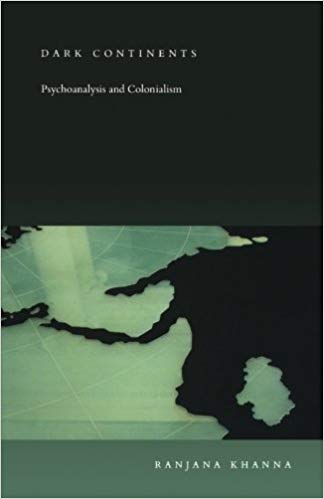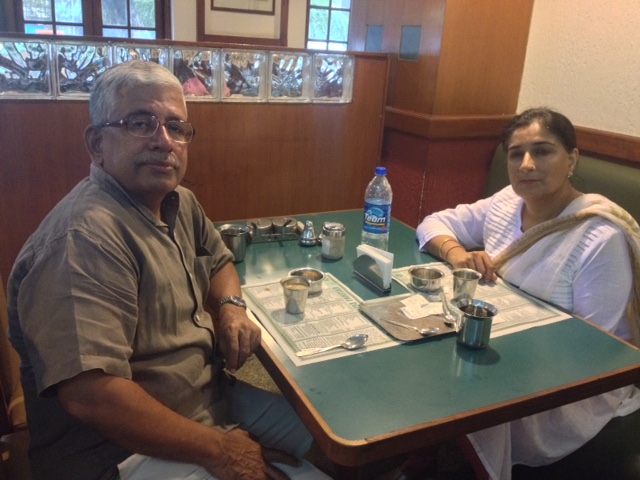What’s the connection between psychoanalysis and post-coloniality, and more importantly, marxism as a science of sciences? For those who are enamoured of the potential of Freudian and Lacanian approaches to psychoanalysis, Zizek provides a state of studied contemplation which helps us to critique the world and its self, in their myriad expressions of strife and monstrosity in our everyday lives and the larger contemporary world. It has been a great journey for psychoanalysis as a Western discipline in its moves towards understanding the invisible and the unravelled dimensions of our private and public engagements. But, as in the case of many Western disciplines, such as sociology and anthropology, psychoanalysis is, to paraphrase Ranjana Khanna, is Parochial and this parochiality is disturbing and annoying as it is a co-habitant of coloniality.
It has been a great journey for psychoanalysis as a Western discipline in its moves towards understanding the invisible and the unravelled dimensions of our private and public engagements. But, as in the case of many Western disciplines, such as sociology and anthropology, psychoanalysis is, to paraphrase Ranjana Khanna, is Parochial and this parochiality is disturbing and annoying as it is a co-habitant of coloniality.
Very rarely, we have had opportunities to understand the location of a parochial and a colonial by product such as psychoanalysis to understand coloniality and post coloniality with psychoanalysis as a critical canvas that tears itself in the process of revealing the truth of coloniality and post coloniality. Such an opportunity is provided by Ranjana Khanna (Duke University) in her remarkable book, Dark Continents; Psychoanalysis and Colonialism (Post Contemporary Interventions.
She provides a very lucid introduction to the linkages between the macro and micro sties of psychoanalysis and post-coloniality while invoking the ideas of Freud, Marx and Althusser. Her opening paragraphs are remarkably lucid.
“Freud infamously referred to women’s sexuality as a “dark continent” for psychoanalysis. Within the continent of psychoanalysis made present by Freud lay this other continent that remained concealed. The map of it was yet to be drawn, or at least a sketchy map needed to be filled in. Not quite absent, it was present only in concealment and mysteriousness.
This study takes Henry Morton Stanley’s metaphor for Africa and Freud’s metaphor for women’s sexuality and considers what it means to make colonialism and women the starting point of an investigation of psychoanalysis. Dark Continents makes use psychoanalytic theory to perform this examination. What is at stake here is the status of psychoanalysis. While at times it is the object of investigation, it is also the preferred theoretical mode of analysis. Reading psychoanalysis symptomatically allows me to understand it as a masculinist and colonialist discipline that promoted the idea of Western subjectivity in opposition to a colonized feminine, and primitive other. Placing psychoanalysis in the world, and understanding the problematic differentiations that psychoanalysis fails to acknowledge, allows me to reconfigure its politics. If psychoanalysis at its Freudian inception and in various other incarnations presents the reader with a story of subjectivity in Western Europe, as I argue, placing it in the world allows for an understanding of the ideological strife engendered in its language and the concepts projected into existence. Dark Continents shows the importance of psychoanalysis in the world today as a reading practice that makes apparent the psychical strife of colonial and post colonial modernity. I argue that psychoanalysis itself is a colonial discipline, and that, as such, it provides mechanisms for the critique of postcoloniality and neocolonialism. I call this critique critical melancholia. Critical melancholia is an affect of coloniality as well as a reading practice that makes apparent the decentered nature of the psychoanalytic paradigm.”
The structuring of ideas occur at three levels in the book. The first level’s ideas are woven around the Foucauldian notion of genealogies, the second level provides a canvas to engage with critical melancholia as an analytical category and a reading practice, which is an important methodological innovation. The third level, as she says, “is more speculative in its style, largely because it looks toward the future even as it is haunted by various melancholic spectres.”
Sharing thoughts on the subject of her book and the existential questions of academics outside Western Europe who are fond of continental philosophies , but are made to engage in creative modes to survive, particularly in Universities in USA, steered the conversation with Ranjana, when we met over breakfast at New Woodlands hotel on a Friday morning, end July 2018.
 She was narrating her experience as a doctoral student working in Algiers and with French as a mode of discourse, even though she was born and raised in an English environment with Indian connections in London. The conversation inevitably touched on the greatness and humility of Jameson and his contributions in keeping alive the spirit of continental philosophical and critical enquiries in USA. The remarkable site of literary studies and how it provides a place of refuge for scholars interested in continental philosophy was touched upon. The ethnocentrism of Indian as well as North American scholars in engaging with what they consider as the pre-eminent prism, aka native philosophies, was critiqued as such an approach fails to acknowledge the universality of the philosophy as a discipline and its constructs. I was introducing her to the initiatives at the Dept.of Journalism and Communication to invoke critical philosophies of the ancient Tamils and the continental philosophers in the process of changing the research encounters of young scholars in the field of journalism and communication. We thanked Kenneth Surin and Janel Watson, the Deleuzian and Guattarian scholars at Duke and friends of Ranjana for the opportunity to know each others’ works and ways of engaging with philosophy and psychoanalysis creatively and with a social purpose.
She was narrating her experience as a doctoral student working in Algiers and with French as a mode of discourse, even though she was born and raised in an English environment with Indian connections in London. The conversation inevitably touched on the greatness and humility of Jameson and his contributions in keeping alive the spirit of continental philosophical and critical enquiries in USA. The remarkable site of literary studies and how it provides a place of refuge for scholars interested in continental philosophy was touched upon. The ethnocentrism of Indian as well as North American scholars in engaging with what they consider as the pre-eminent prism, aka native philosophies, was critiqued as such an approach fails to acknowledge the universality of the philosophy as a discipline and its constructs. I was introducing her to the initiatives at the Dept.of Journalism and Communication to invoke critical philosophies of the ancient Tamils and the continental philosophers in the process of changing the research encounters of young scholars in the field of journalism and communication. We thanked Kenneth Surin and Janel Watson, the Deleuzian and Guattarian scholars at Duke and friends of Ranjana for the opportunity to know each others’ works and ways of engaging with philosophy and psychoanalysis creatively and with a social purpose.